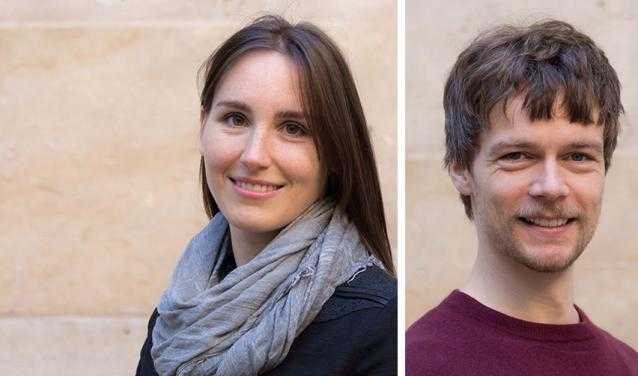Home>MaxPo: a small research centre in a big city

09.01.2017
MaxPo: a small research centre in a big city
Lisa Kastner and Troels Krarup have recently completed their doctoral studies at MaxPo, a Franco-German social science research centre which was co-founded by the Max Planck Society and Sciences Po in 2012. They talked to us about their experience at MaxPo.
What were some of the most positive aspects of being a doctoral student at MaxPo?
LK: What I liked most about being a doctoral student at MaxPo was that fellows from all over the world would join the centre for short- or long-term stays, during which they would share and discuss their ideas with us.
TK: There are two main things that contribute, in my view, to the uniqueness of MaxPo as a place to do one’s doctoral studies. First, the level and pertinence of the seminar series—Seminars and Colloquia on Ökonomie, Politics and Society (SCOOPS) and Conversations on the Economy, Politics and Society (COOPS)—and of the visiting researchers. MaxPo brought high-profile researchers into our learning environment, which was extremely valuable for me as a young scholar.
The fact that MaxPo is a small research centre in a big city is another reason for studying here. You have your base where you know everyone, but you also have access to an infinite number of activities and networks.
How did studying and working among the wider Sciences Po community benefit you?
LK: During my time at Sciences Po, I was also affiliated with the Centre d’études européennes (CEE). This meant I was able to take part in the academic activities of two research centres at the same time, and participate in a number of conferences with exciting international guest speakers.
TK: I particularly benefited from the PhD seminars and workshops. I took part in Bruno Latour’s thesis-writing workshop and in a course with Bruno Palier on qualitative research methodology, both of which I found very helpful.
I also benefited from the presence of high-profile guest speakers at Sciences Po such as Jens Weidmann from the Deutsche Bundesbank. I learned a lot from attending these various seminars and colloquia.
What do you see as the main strengths of a collaborative research centre like MaxPo?
LK: At MaxPo, students have the opportunity to get to know and become a part of different circles of researchers based in France and Germany. It was a great intellectual stimulation for me to be exposed to their different perspectives.
TK: I think the joint workshops on economic sociology for the doctoral students in Cologne and Paris were of great benefit, both in terms of content and of getting to know other young scholars from an affiliated research institution.
What are your plans upon completion of your PhD?
LK: I am currently working for a think tank in Brussels. I will also continue publishing parts of my research as articles in scientific journals.
TK: I’m going to apply for postdoc funding. I wish to pursue my analysis of economic discourse in European market integration—for example, with a project on state aid legislation and jurisprudence in the EU.
Related links